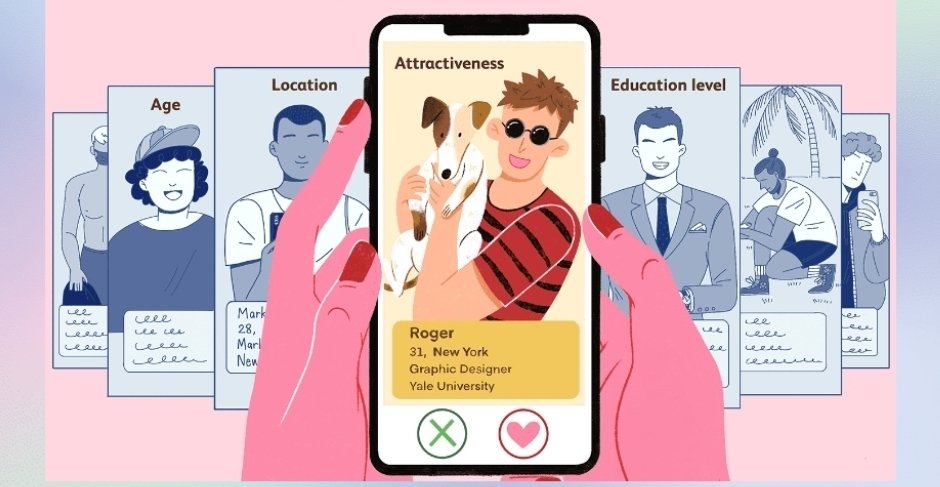
In an era marked by technological advancement, the advent of dating apps has revolutionized the way we forge romantic connections. These digital platforms offer a convenient and accessible means of meeting potential partners, transcending geographical boundaries. However, the rising popularity of dating apps has sparked discussions about their influence on mental health. This article delves into the intricate relationship between dating apps and mental well-being, shedding light on the positive and negative aspects that intertwine.
The Positive Facets
1. Enhanced Accessibility to Relationships: Dating apps break down traditional barriers, providing an avenue for people to connect with individuals they might not have encountered otherwise. This widens the social circle, fostering inclusivity and reducing social isolation.
2. Boosting Self-Esteem: Positive interactions on dating apps can contribute to an improved sense of self-worth. Match notifications and flattering messages can bolster one’s confidence and perception of desirability.
3. Opportunities for Introverts: Introverted individuals find solace in the controlled environment of dating apps, where they can initiate conversations at their own pace, promoting a sense of comfort and empowerment.
The Darker Side
1. App-Induced Anxiety: The paradox of choice presented by numerous profiles can lead to anxiety about making the “perfect” selection. The fear of missing out (FOMO) on a potentially better match can be overwhelming.
2. Constant Rejection: The swiping nature of dating apps normalizes rejection. A string of unanswered messages or unsuccessful matches can dent self-esteem and trigger feelings of worthlessness.
3. Image and Self-Esteem Issues: The emphasis on visual appeal can foster body image insecurities and lead to a superficial assessment of potential partners. This perpetuates societal beauty standards and adversely affects mental health.
The Swipe-Addiction Conundrum
1. Dopamine-Driven Behavior: The swiping mechanism triggers the release of dopamine, the “feel-good” neurotransmitter. This creates a cycle of seeking validation through matches, engendering addictive behavior.
2. Time-Efficiency vs. Meaningful Connections: While dating apps offer convenience, they can undermine the development of profound connections. Users may prioritize quantity over quality, contributing to feelings of emptiness.
Mitigating the Impact
1. Conscious Usage: Practicing mindful swiping involves setting boundaries and time limits to prevent excessive usage and its associated negative impact.
2. Prioritizing Mental Well-being: Regular self-assessment for signs of app-related stress, coupled with seeking professional help when necessary, can mitigate the potential harm.
3. Promoting Real-Life Interaction: Balancing online interactions with face-to-face communication is essential. This fosters genuine connections and reduces the detrimental effects of app-centric relationships.
Dating apps have undeniably transformed the dynamics of modern relationships. While they offer a plethora of advantages such as increased accessibility and boosted self-esteem, it is crucial to acknowledge the darker aspects that can compromise mental health. The dopamine-driven cycle of swiping and the challenges of rejection and self-esteem issues are factors that require vigilance. By adopting mindful usage, prioritizing mental well-being, and nurturing offline connections, individuals can navigate the dating app landscape while safeguarding their mental health. In this digital age, the key lies in finding a harmonious balance between virtual exploration and genuine emotional well-being.